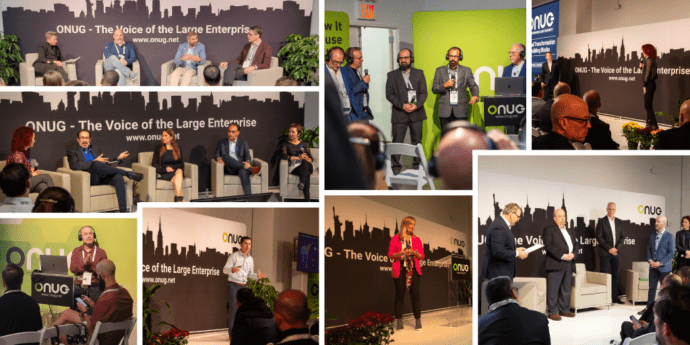
Cloud Interoperability Is Good for Cloud Providers
Talk to cloud providers about interoperability, and they get an allergic reaction, a bad allergic reaction … one that comes on within milliseconds. I get their reasoning. The market is moving too fast, and creating standards will only slow down the pace of innovation. Or you’ll hear “we’ve invested so much in innovation, why should we give it away?” Or “we’re so far ahead of the market, opening it up will only erode our share that we risked capital and brand to gain.”
It doesn’t matter if you are talking with Amazon or Microsoft, you get the same list of objections; Google and IBM are more open to the “open” concept, perhaps due to market share distribution. But be it as it may, the loud call from IT executives to open up the cloud market and enable interoperable clouds is falling upon deaf ears. But an open cloud market, one that has a degree of interoperability, is good for the cloud providers and the world economy.
Consider the following …
Mobile Market Parallel: The cloud providers market may go the way as the mobile operators. There is little interoperability between mobile carriers and smartphones for that matter. As the market reaches saturation, the only way for mobile operators to grow is to steal customers away from competitors. Verizon, AT&T, T-Mobile and Spring are the four major carriers in the U.S. and account for some 98% market share. Forrester Research claims that mobile phone penetration is at 91% of Generation Y homes, much higher than the 80% for all households across North America.
Stalling Digital Economy Growth: The digital economy is in its early days, but we all know that the global economy is shifting toward it. According to U.S. Commerce Department’s Bureau of Economic Analysis, the digital economy has been growing at triple the pace of U.S. GDP. And the digital economy supports some 44 million jobs in the U.S. alone, according to the U.S. Department of Labor, and that number is projected to increase rapidly. The cloud providers could join the “Too Big to Fail” club if the vast majority of workloads and applications are locked in a small number of cloud providers. This lack of interoperability becomes a single point of economic failure issue and could be the basis of antitrust hearings much like the consumer tech side is facing now.
Digital Enterprises Can’t Be Held Back: If cloud providers remain closed and succeed in locking in corporations, then let’s hope that their technology platforms are flexible enough to support a vast and wide range of corporate needs that span all industry sectors. If not, then the closed nature of the cloud providers could limit a corporation’s ability to compete or develop applications to support its unique requirements. This would, more than likely, open up an opportunity for new entrants into the cloud market to satisfy enterprise executives’ and technologists’ frustrations; it’s the perfect market conditions for venture capital investment.
Traditional Sources of Openness Are Closed: Normally, standards organizations, open source communities and academia would provide a path toward open and interoperability solutions, but sadly they are not interested. There are no serious open cloud initiatives, like the IETF in the late 80s/early 90s that drove a set of open standards that unleashed the digital age. Dr. Douglas Comer, Purdue University Computer Science professor, detailed this lack of activity during ONUG Spring 2019 in Dallas.
The closed cloud market is driving all enterprises to adopt a hybrid/multi-cloud strategy. This is difficult, consumes much time and resources, but it’s the price of a closed market. This is the focus of ONUG Fall 2019 in NYC; that is, what are the software building blocks for building and running secure digital enterprises?
An open cloud market is in the best interest of all cloud providers. The global economy is going digital. This is not just a large multi-trillion dollar market, but it’s the entire economy! The internet experiment showed that when there is a base level of openness and interoperability, massively large markets and new companies develop growing economic activity, output and GDP. Being digital is clearly a worldwide global market, based largely on U.S. technology. It’s not only in the best interest of the cloud providers but of the U.S. to have an open cloud market to accelerate the digital economy.
The cloud providers can start with base connectivity — that is, a standard SD-WAN approach to connecting into clouds. There are some activities on automation orchestration with Kubernetes, but the runtimes are all different in every cloud provider, limiting its usefulness of developing once and run anywhere. Open and standard-based APIs would be hugely beneficial, and yes, cloud providers can offer proprietary extensions to differentiate.
At ONUG Fall in NYC on October 16-17, hosted by Cigna, the ONUG Community will continue the conversation with the cloud providers as all the major brands will be there. At ONUG Fall, the Town Hall Meeting will host all cloud providers as we dive into the biggest challenges confronting enterprises on their digital journeys. The ONUG Great Debate will explore the great divide between on- and off-prem security tools. You’ll be able to see and talk to all of the cloud providers under one roof — a uniquely ONUG experience — plus, there will be over 50 Proof of Concepts demonstrations from which to choose.
I invite you to join us at ONUG Fall and accelerate your corporation’s journey toward being a digital enterprise. Register here.



